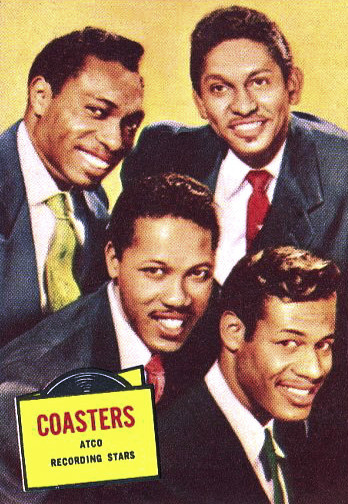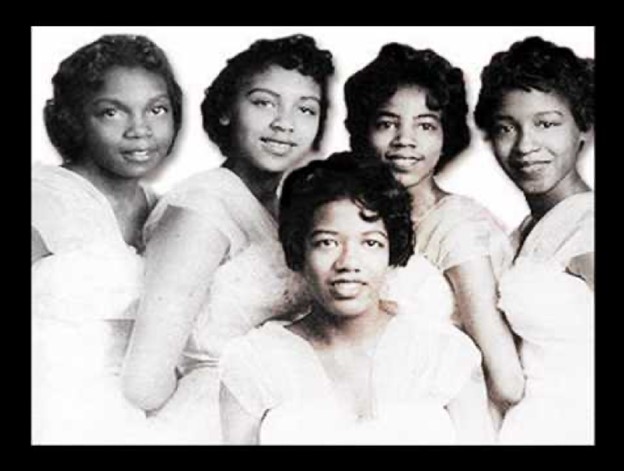
Styles: Doo-Wop 3
In the late 1950s, Atlantic Records further updated the doo-wop sound, producing hit records by groups including The Coasters and The Drifters, written by professional songwriters such as Jesse Stone, Jerry Leiber and Mike Stoller, and Doc Pomus and Mort Shulman. The Coasters' recordings, including "Yakety Yak" , "Little Egypt" , and "Charlie Brown" were extremely humorous commentaries on aspects of contemporary Black culture. In their latter song, the lyrics poke fun at a school character who doesn't always accept class rules as others. Here is their 1959 appearance on the Saturday Night Beech-Nut Show hosted by Dick Clark.
The Drifters as opposed to The Coasters typically sang songs that reflected the joys and tensions of young love in the big city. While both often used Latin percussion and rhythms, Leiber and Stoller's 1959 production of The Drifters' is arguably the first rhythm and blues recording to use strings.
Until the late 1950s, Black vocal groups singing doo-wop were nearly exclusively male. In 1958 five young women from the Bronx assumed the moniker The Chantels and recorded a pleading song of adolescent love called "Maybe" for End Records, reaching no. 2 on the R & B charts and no. 15 on the pop charts. The album "Maybe" was the catalyst for numerous young women to form similar groups that began to surface in the early 1960s.

The Chantels - Maybe (1958) [ 00:00-00:00 ]
Sh-Boom
Oh, life could be a dream
(Sh-boom)
If I could take you up in paradise up above
(Sh-boom)
If you would tell me I'm the only one that you love
Life could be a dream, sweetheart
Sweet Lorraine
Just found joy
I'm as happy as a baby boy,
baby boy
With another brand new
choo-choo choy
When I met my sweet Lorraine, Lorraine, Lorraine







